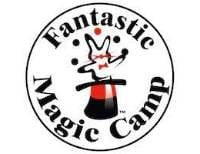| Academic competition 2012-07-29 Author: Jennifer Van Buren |
Has “No Child Left Behind” led to “No Child Running Ahead Either?” Some believe it has. “No Child Left Behind” was put into place in order to account for children who meet a minimum proficiency, but are there external incentives to push children forward beyond the standards? Organized academic competition may provide an opportunity for students to extend, excel and earn recognition.
Competition vs. cooperation?
The public opinion of the value of competition swings like the proverbial pendulum. Some feel in order for children to reach their fullest potential, competition on the academic level is necessary, while others feel that we need to teach students the skills of teamwork. Can there be a balance? Why not? Sometimes we underestimate a child’s ability to handle the experience of not winning. Is academic competition healthy? It depends on how it is modeled and taught.
Math Olympiad, Science Olympiad, geography bee, science fair, Texas Quiz Bowl, Academic Decathlon, chess tournaments, Texas Knowledge Master Open and of course, University Interscholastic League (UIL) are some of the many academic competitions available to Texas students, not to mention the countless local and national contests offered outside the school system. Are any of these programs right for your child?
UIL was created by The University of Texas at Austin in 1910. Over a half million students participate in UIL academic contests. According to UIL literature, the activities “exist to complement the academic curriculum, are designed to motivate students as they acquire higher levels of knowledge, to challenge students to confront issues of importance and to provide students with the opportunity to demonstrate mastery of specific skills.”
Fair play?
It is a common misconception that UIL and other academic competitions are limited to gifted students. Underachieving students and those who struggle in some areas may have a focused interest in which they can shine. A student who has difficulty with math skills may flourish in music memory. Individual schools may hold practice sessions open to many children, and while only a few will qualify for higher level competitions, the benefits of teamwork are available to all.
Students and coaches were given a questionnaire to evaluate their experience with UIL. The summary of this evaluation can be found at www.uiltexas.org. Coaches report that UIL competition has benefits beyond the application of the knowledge and skills acquired from preparation and competition. Students learn the importance of self-discipline, hard work and teamwork. Important life skills are developed, such as the ability to perform and maintain poise under pressure. Coaches and parents also notice the development of self-esteem and self-confidence. By supporting academic competition, schools, parents and communities demonstrate their belief in the importance of education.
Two anonymous quotes gathered from the evaluation:
“I always wanted to be an athlete. Through my involvement in UIL academics, I proved to myself that I possess those same characteristics that make an athlete successful: dedication, stamina, zeal and poise. No gold medal could be more valuable than that.”
“I learned at my last state contest the most important lesson – something my parents and teachers had told me for years. Being a winner doesn’t mean winning first place. It’s doing your best and being proud of what you’ve done.”
Make it Happen
There are a few state grants that help fund teacher training and student participation in select academic competitions such as MATHCOUNTS and the Texas Academic Decathlon. Texas Creative Problem Solving Organization provides assistance to at least 10 at-risk secondary campuses. Grants may also be available to UIL to assist non- and underrepresented high schools to increase participation.
It is impossible for every individual school to offer a program in every single category. If a particular UIL program interests your child but is not offered at her school, consider volunteering to sponsor that category. Someone has to do it, and if you are able, it would be a great service to your child and school.
Win or Lose
How can parents teach healthy competition? Dr. Sylvia Rimm, director of the Family Achievement Clinic, gives some key lessons to prepare children for competition.
First place is temporary. Celebrate a child’s success but remind him that there is always someone “better” and always someone “worse” out there somewhere, and there is always another level of competition. Just getting to the competition is a victory.
Celebrate others. Even while your child is winning (maybe especially while your child is winning), help him notice and admire the other competitors. Teach him the value of good sportsmanship by valuing others and celebrating their success.
Put personal improvement first. Encourage him to compete with his own past performance or personal best.
Start at home. Game time can be a good exercise in learning healthy competition. Make it fair so each child has a chance at winning but don’t just let them win all of the time. Find a balance and be kind, but don’t feel sorry for a child when she loses. Find something positive to say when a family member plays well. If a child avoids competition, don’t let it stop the rest of the family from having fun. Hopefully watching you play will tempt her to join in.
Teaching how to be a “gracious winner” is just as important as teaching how to not be a “sore loser.” When a child comes out on top or bottom, temper your reaction. Resist bragging or berating. Don’t speak poorly of other competitors or judges. If your emotional state is too dependent on your child’s success or failure, you will take away from his experience and set him up for undue stress in the future. This is his competition to win or lose. Be supportive but do not take it on as your own. If you are seriously interested in competition, consider finding your own.
I hear Jeopardy is looking for contestants!
Jennifer VanBuren is an educator and Georgetown mother of three.
















